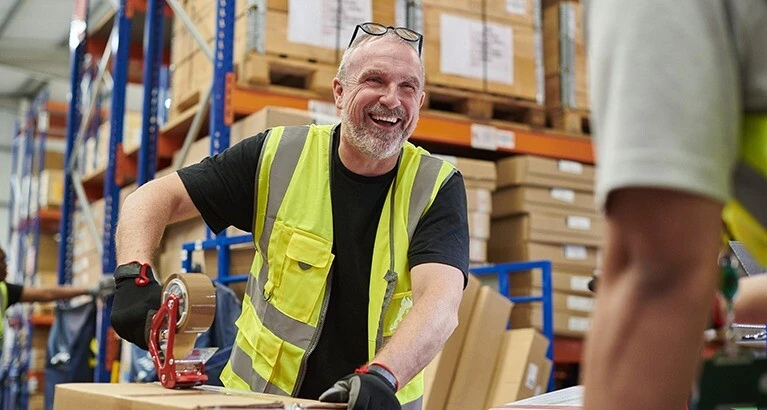Director of the Centre for Business Research (CBR)
Fellow (Economics and Policy)
Fellow of Peterhouse
MA, PhD (University of Cambridge)
I am a member of the Economics & Policy subject group.
My research interests include the study of corporate governance from an interdisciplinary and comparative perspective; economic and sociological theories of law; empirical studies of the effects of legal change; doctrinal legal analysis in the areas of labour, corporate and private law; relations between shareholders and directors; human resource management and employment contracting; inter-firm relations; corporate insolvency; corporate social responsibility.

Professional experience
Simon is the Director of the Centre for Business Research (CBR), and a Professor of Law in the Faculty of Law at Cambridge. He specialises in the economics of law and empirical legal studies, with particular reference to labour law, private law, and corporate governance. He is a Fellow of the British Academy and has received the ECGI and Allen & Overy prizes for his research on corporate governance. He has carried out consultancy and contract research for numerous governments, international organisations, companies, business associations, trade unions and NGOs.
Previous appointments
Simon held research fellowships in Cambridge and Chicago before taking up his first teaching position as a lecturer in law at Queen Mary, University of London, in 1987. He was appointed to a law lectureship in Cambridge in 1990 and has stayed in Cambridge since, lecturing in both Cambridge Judge Business School and the Faculty of Law. He is also a Fellow of Peterhouse. His involvement in the Centre for Business Research dates from its foundation in 1994. He became its Director in 2013. He has held visiting positions at universities in Australia, France, Italy, Japan and the USA.
Publications
- Adams, Z., and Deakin, S. (2015) “Quantitative labour law.” In: Ludlow, A. and Blackham, A. (eds.) New frontiers in empirical labour law research. Oxford: Hart.
- Hamilton, J. and Deakin, S. (2015) “Russia’s legal transitions: Marxist theory, neoclassical economics and the rule of law.” Hague Journal of the Rule of Law, 7(2): 283-307 (DOI: 10.1007/s40803-015-0012-8)
- Deakin, S., Fraser Butlin, S., McLaughlin, C. and Polanska, A. (2014) “Are litigation and collective bargaining complements or substitutes for achieving gender equality? A study of the British Equal Pay Act.” Cambridge Journal of Economics, 39(2): 381-403 (DOI: 10.1093/cje/bev006)
- Chen, D. and Deakin, S. (2014) “On heaven’s lathe: state, rule of law, and economic development.” Law and Development Review, 8(1): 123-145 (DOI: 10.1515/ldr-2014-0031)
- Deakin, S., Malmberg, J. and Sarkar, P. (2014) “How do labour laws affect unemployment and the labour share of national income? The experience of six OECD countries, 1970-2010.” International Labour Review, 153(1): 1-27 (DOI: 10.1111/j.1564-913X.2014.00195.x)
- Buchanan, J., Chai, D.H. and Deakin, S. (2014) “Empirical analysis of legal institutions and institutional change: multiple-methods approaches and their application to corporate governance research.” Journal of Institutional Economics, 10(1): 1-20 (DOI: 10.1017/S1744137413000349)
CBR projects
Addressing Gender Inequality through Corporate Governance
Capright: Resources, Rights and Capabilities in Europe
Corporate Law and Economic Performance
GCRF Research for Health in Conflict (R4HC-MENA)
Law, Development and Finance in Rising Powers
Pension Fund Governance and Socially Responsible Investment
Reflexive Governance in the Public Interest
Reflexive Law and Democratic Governance
Social Dialogue, Employment and Territories: Towards a European Politics of Capabilities
The Implementation of the Working Time Directive in the UK
Updating Employment Institutions and Governance
The Internet of Things: Shaping Our Futures
Labour Law and Poverty Alleviation in Low and Middle-Income Countries
Law, Development and Finance in Rising Powers
Maximising Innovation in the Supply Chain beyond Procurement and Contract Execution
News and insights
Research centre news
Report finds stronger UK worker protection under new law
Legal protection for British workers under the Employment Rights Act 2025 will move closer to the Organisation for Economic Cooperation and Development (OECD) average, according to a new UK government report that uses the Labour Regulation Index of the Cambridge Centre for Business Research (CBR) at Cambridge Judge Business School.
Research centre news
Employment Rights Bill: UK government cites CBR research
The UK government’s changes to the Employment Rights bill cites research on employment laws at the Centre for Business Research at Cambridge Judge Business School.
Research centre news
Report released on legal framework for venture capital in Ukraine
Today (18 December) the Centre for Business Research (CBR) publishes a research report which assesses the role that legal and institutional reform can play in supporting a sustainable venture capital (VC) sector in Ukraine. The report is intended to inform Ukraine’s post-war reconstruction.




